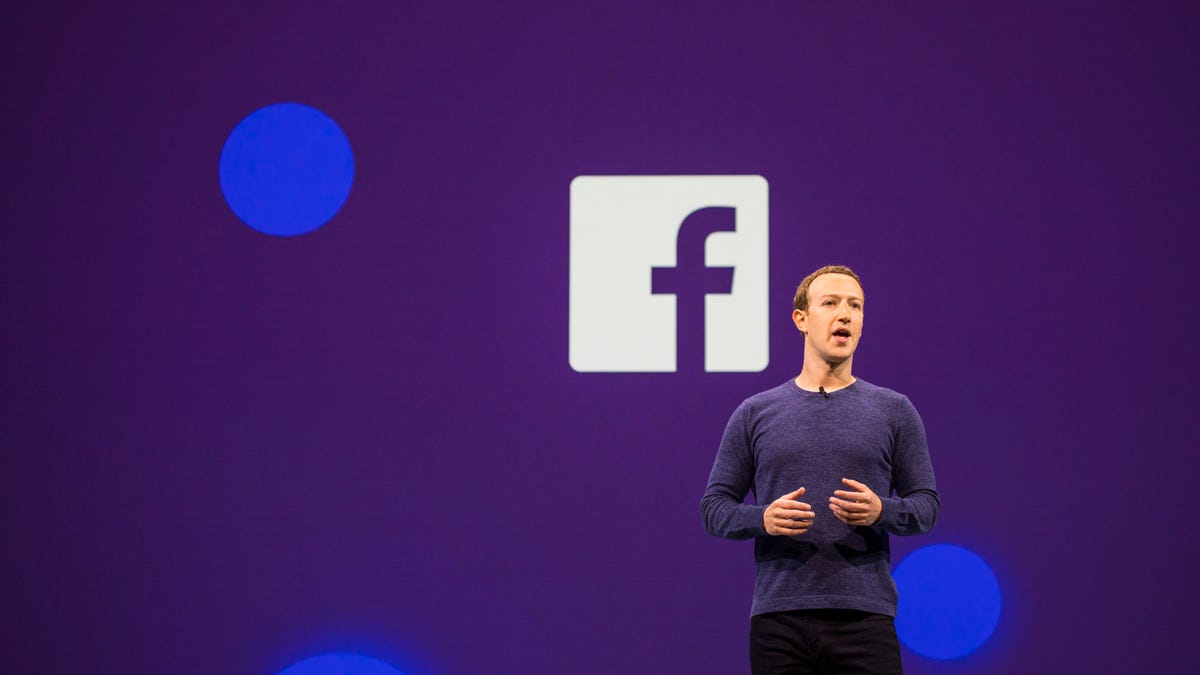Mark Zuckerberg lays out Facebook's plan for protecting the 2020 election
The CEO also says his team has reached out to Sen. Elizabeth Warren, a high-profile critic.

CEO Mark Zuckerberg on Monday detailed how Facebook is preparing for election interference in 2020.
Facebook said Monday morning it is introducing election security initiatives as both the race for the White House and criticism of the social network ramp up. Later in the day, CEO Mark Zuckerberg said in a television interview that his company had been in touch with Sen. Elizabeth Warren, a Democratic presidential hopeful and frequent Facebook critic.
During a media call, Zuckerberg and other company executives said the social network would be updating its policy on inauthentic behavior, as well as providing better account protections for elected officials, candidates and their staff members through a new program called "Facebook Protect." Facebook will also be labeling pages from state-run media and rolling out a new spending tracker for presidential candidates.
"So the bottom line here is that the elections have changed significantly since 2016, and Facebook has changed too," Zuckerberg said on the call. Also on the call were Guy Rosen, Facebook's vice president of Integrity; Nathaniel Gleicher, director of cybersecurity policy; Rob Leathern, product management director; and Katie Harbath, public policy director for global elections.
Facebook's new programs build on earlier measures to prevent election interference. The company has also regularly hosted meetings with the US government to detect threats to US democracy and invested in its "war room" effort, a unit dedicated to spotting fake election news. Zuckerberg said the social network has more than 35,000 people working on security and safety.
Facebook found itself embroiled in election security concerns after it failed to address widespread disinformation on the social network, which Russian operatives used to influence the 2016 US presidential election. At the time, Zuckerberg dismissed the criticism and said it was a "pretty crazy idea" that disinformation on Facebook influenced the election.
In an interview with NBC Nightly News with Lester Holt on Monday evening, Zuckerberg acknowledged that Facebook missed the challenges presented by disinformation because it was looking for other kinds of interference. "You know we were looking for more traditional threats like hacking," he said. "But we weren't looking for these kinds of coordinated information campaigns that now we're aware of."
Nation-state attacks on Facebook didn't stop after 2016, but the social network has taken a more proactive approach. Facebook has, for instance, removed coordinated disinformation campaigns, including those created by Russian and Iranian actors.
Zuckerberg said the company has seen increasing sophistication in attacks from Russia, Iran and China. The majority of coordinated disinformation campaigns have been coming from Russia, he said.
Gleicher said Facebook removed four disinformation operations, which originated from Iran and Russia. The posts targeted elections in the US, Latin America and North Africa.
One Russia-based network posed as a group of voters in swing states praising President Donald Trump and attacking former vice president and current Democratic presidential candidate Joe Biden, The Washington Post reported. A coordinated group of Instagram accounts with apparent links to Russia's Internet Research Agency posted content and memes targeting Democratic candidates.
Facebook's critics have raised concerns, though, that the company still allows misinformation from political campaigns. Last week, Zuckerberg defended Facebook's decision to allow politicians to lie in political ads.
Warren, who has called for the breakup of big tech companies -- including Facebook -- ran a Facebook ad with false information about Zuckerberg to protest false Facebook ads. Biden also criticized Facebook after the social network declined to remove a false ad from Trump's reelection campaign.
Zuckerberg: 'This isn't about money'
Zuckerberg defended the decision again on Monday, saying that by accepting political ads, Facebook was helping people hear the voices of politicians challenging incumbents. "From a business perspective, this controversy isn't worth the very small part of our business that this makes up, so this isn't about money," Zuckerberg said during the call.
Facebook's chief technology officer echoed those comments during an onstage interview Monday at the WSJ Tech Live conference in Laguna Beach, California.
"It is not a big part of our business, and it's probably not worth the scrutiny and criticism we're getting for it," Facebook CTO Mike Schroepfer said during the interview. Schroepfer pointed out that placing ads on Facebook also help candidates who can't afford TV spots get their message out to voters.
"if we make ads available to everyone, then the local candidate or local senator who can't afford a TV ad can advertise on Facebook because it's more effective and less expensive. That is a generalized good."
In the NBC interview, Zuckerberg said his company had reached out to Warren. "Our teams are definitely in contact," he said, "although I haven't spoken with her personally about this."
Facebook said it would ban ads that dissuaded people from voting, a tactic that was part of the 2016 disinformation campaign. The company has already removed more than 45,000 pieces of content that discourage voting. It said more than 90 percent of this content was detected automatically.
Facebook Protect participants will be required to turn on two-factor authentication, and these accounts will be monitored for suspicious activity like hacking attempts. Google has a similar offer called the Advanced Protection Program. Microsoft also offers protections for campaigns.
"There's still, of course, a long way to go before Election Day. And we know that we have a big responsibility to secure out the platform today ahead of some sophisticated new threats to the integrity of elections here and around the world," Zuckerberg said.
Originally published Oct. 21, 10:22 a.m. PT
Update, 5:02 p.m. PT: Adds new material from NBC Nightly News interview; 5:39 p.m. PT: Adds info from The Washington Post. 9:45 p.m. PT: Adds CTO comments from WSJ conference.

